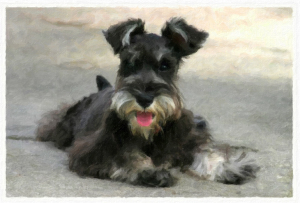The Alaskan Klee Kai is a relatively new and rare breed of dog that was developed in Alaska in the 1970s.
Often mistaken for a miniature Siberian Husky, the Alaskan Klee Kai is a smaller version of the Husky, with a similar appearance but with its own unique traits and characteristics.
Appearance:
The Alaskan Klee Kai is a small to medium-sized dog, with a height ranging from 13 to 17 inches (33 to 43 cm) at the shoulder for males and 12 to 16 inches (30 to 41 cm) for females. They typically weigh between 10 to 20 pounds (4.5 to 9 kg), making them a perfect size for apartment living. They come in three different sizes: Toy, Miniature, and Standard. Their coat is thick and double-layered, and comes in a variety of colors including black, white, gray, and red.
Temperament:
The Alaskan Klee Kai is an intelligent, alert, and curious breed. They are highly energetic and require daily exercise and playtime to keep them happy and healthy. They are loyal and affectionate with their families, but can be reserved around strangers. They are independent and can be stubborn at times, so early socialization and training are important to help them become well-behaved and well-adjusted adult dogs.
Health:
Like all purebred dogs, Alaskan Klee Kais are prone to certain health issues. Some of the most common health concerns in this breed include hip dysplasia, eye problems, and dental issues. It’s important to buy from a reputable breeder who screens their dogs for these health conditions. Regular vet checkups and a healthy diet can also help keep your Alaskan Klee Kai in good health.
History:
The Alaskan Klee Kai was developed in the 1970s in Alaska by a woman named Linda Spurlin. She wanted to create a smaller version of the Siberian Husky, with the same look and personality but in a more manageable size. She crossed Siberian and Alaskan Huskies with smaller breeds such as the Schipperke and American Eskimo Dog to create the Alaskan Klee Kai.
Training:
Alaskan Klee Kais are intelligent and eager to please their owners, but can be independent and stubborn at times. Positive reinforcement training techniques, such as reward-based training, can be effective with this breed. They respond well to consistency and a firm but fair approach. Early socialization and training are important to help your Alaskan Klee Kai become a well-behaved and well-adjusted adult dog.




